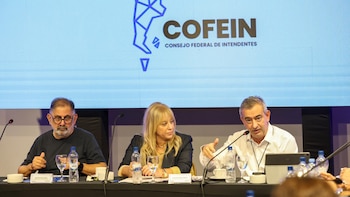Santo Domingo, 18 Mar Only 8% of Dominicans define themselves as black, according to the results of a survey published this Friday in the country's capital, where people of African descent represent the majority of the population. In contrast, 45% of Dominicans consider themselves Indian, 18% define themselves as white, 16% as brown and 9% mulatto, according to the Racial and Ethnic Self-Perception Survey in the Dominican Republic, which interviewed 1,309 people over 18 years of age. The research, which aims to contribute to the generation of dialogue and reflection on Afro-descent in the country, was carried out by the United Nations Population Fund (UNFPA) and was presented during the Drum Dialogue, an activity organized to address the issue of people of African descent in the country. The survey revealed that respondents identify with up to 27 racial ethnic categories, including light Indian, cinnamon Indian, light white and dark white, light brown or “lavaito” (lavadito). As educational attainment increases, he adds, there is a greater tendency to identify himself as mulatto and less tendency to consider himself Indian or white. At an older age, there is a lower tendency to identify as brown and a greater tendency to describe themselves as Indian, while women tend to identify themselves more as brunettes. In the presentation, Deputy Minister of Multilateral Foreign Policy, Rubén Silié, stated that in the Dominican Republic “we are all Afro-descendants, even whites, and we must claim it.” Silié explained that in the country there are racial prejudices and a “false” construction of nationality, imposed by “dominant currents”, which are based on a cultural heritage from the time of independence and the dictatorship of Rafael Trujillo (1930-1961). He explained that since the Dominican Republic gained independence from Haiti, in the 19th century there was an attempt to “turn all the cultural references” of the Dominican Republic towards Hispanic and Spanish culture, and the “black ingredient” of Dominican nationality was “dulled”. This denial of the black was also maintained in the Trujillo dictatorship, a time when indigenism was also exalted, which explains why many people identify themselves as indigenous, despite the fact that the island's native peoples were exterminated in the 16th century. The presentation of the survey was attended by the Vice President of Costa Rica, Epsy Campbell; and the director for Latin America and the Caribbean of UNPFA, Harold Robinson Davis, among others.
Últimas Noticias
Debanhi Escobar: they secured the motel where she was found lifeless in a cistern
Members of the Specialized Prosecutor's Office in Nuevo León secured the Nueva Castilla Motel as part of the investigations into the case

The oldest person in the world died at the age of 119
Kane Tanaka lived in Japan. She was born six months earlier than George Orwell, the same year that the Wright brothers first flew, and Marie Curie became the first woman to win a Nobel Prize

Macabre find in CDMX: they left a body bagged and tied in a taxi
The body was left in the back seats of the car. It was covered with black bags and tied with industrial tape
The eagles of America will face Manchester City in a duel of legends. Here are the details
The top Mexican football champion will play a match with Pep Guardiola's squad in the Lone Star Cup

Why is it good to bring dogs out to know the world when they are puppies
A so-called protection against the spread of diseases threatens the integral development of dogs




